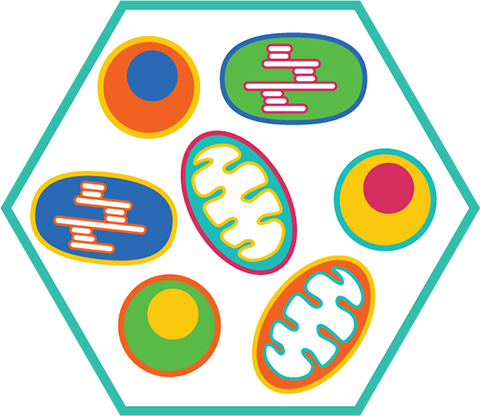
The specialized metabolism and trafficking of cellular subcompartments
Your first biology course probably defined eukaryotes in part as having a group of specialized organelles. These membrane-bound subcompartments of the eukaryotic cell are unique in many ways, especially their specialized biochemistry and metabolism.
The three sessions we have organized for Discover BMB will cover several topics focused on the novel biology and biochemistry of the mitochondria, peroxisome and chloroplast. These sessions will address current research on specific metabolic pathways, with important new insights into the protein structure and trafficking that support the integrity and function of these organelles.
Submit an abstract
Abstract submission begins Sept. 14. If you submit by Oct. 12, you'll get a decision by Nov. 1. The regular submission deadline is Nov. 30. See the categories.
These multidisciplinary talks will provide information not only on the specific biochemical functions of these organelles, but also on their integrative architecture and physiology. In the three sessions, new information will be integrated into general principles of organelle biogenesis and metabolic function.
Keywords: Mitochondria, chloroplast, peroxisome, metabolism, covalent modifications, organelle biogenesis, protein structure and trafficking.
Who should attend: Anyone interested in metabolism, organellar proteomes and the specialized biology of organelles.
Theme song: “The Cell” by Gojira, because it is such a high-energy song — mitochondria, chloroplasts ...
This session is powered by ATP.
Mitochondria, peroxisomes and chloroplast metabolism

Protein covalent modifications and chloroplast metabolism
Chair: Greg Moorhead
Greg Moorhead, University of Calgary
Glen Uhrig, University of Alberta
R. Paul Jarvis, University of Oxford
Paula Mulo, University of Turku
Peroxisome biogenesis/metabolism
Chair: Tom Rapoport
Francesca Di Cara, Dalhousie University
Brooke Gardner, University of California, Santa Barbara
Tom Rapoport, Harvard Medical School; Howard Hughes Medical Institute
Irfan Lodhi, Washington University in St. Louis
Mitochondria energetics/metabolism
Chair: Erin Goley
Pere Puigserver, Dana–Farber Cancer Institute; Harvard Medical School
Lena Pernas, Max Planck Institute for Biology of Ageing
Alexey Amunts, Stockholm University
Rebecca Voorhees, California Institute of Technology
Enjoy reading ASBMB Today?
Become a member to receive the print edition four times a year and the digital edition monthly.
Learn moreGet the latest from ASBMB Today
Enter your email address, and we’ll send you a weekly email with recent articles, interviews and more.
Latest in Science
Science highlights or most popular articles

From humble beginnings to unlocking lysosomal secrets
Monther Abu–Remaileh will receive the ASBMB’s 2026 Walter A. Shaw Young Investigator Award in Lipid Research at the ASBMB Annual Meeting, March 7-10 in Washington, D.C.

Chemistry meets biology to thwart parasites
Margaret Phillips will receive the Alice and C. C. Wang Award in Molecular Parasitology at the ASBMB Annual Meeting, March 7-10 in Washington, D.C.

ASBMB announces 2026 JBC/Tabor awardees
The seven awardees are first authors of outstanding papers published in 2025 in the Journal of Biological Chemistry.

Missing lipid shrinks heart and lowers exercise capacity
Researchers uncovered the essential role of PLAAT1 in maintaining heart cardiolipin, mitochondrial function and energy metabolism, linking this enzyme to exercise capacity and potential cardiovascular disease pathways.

Decoding how bacteria flip host’s molecular switches
Kim Orth will receive the Earl and Thressa Stadtman Distinguished Scientists Award at the ASBMB Annual Meeting, March 7–10, just outside of Washington, D.C.

Defining JNKs: Targets for drug discovery
Roger Davis will receive the Bert and Natalie Vallee Award in Biomedical Science at the ASBMB Annual Meeting, March 7–10, just outside of Washington, D.C.


